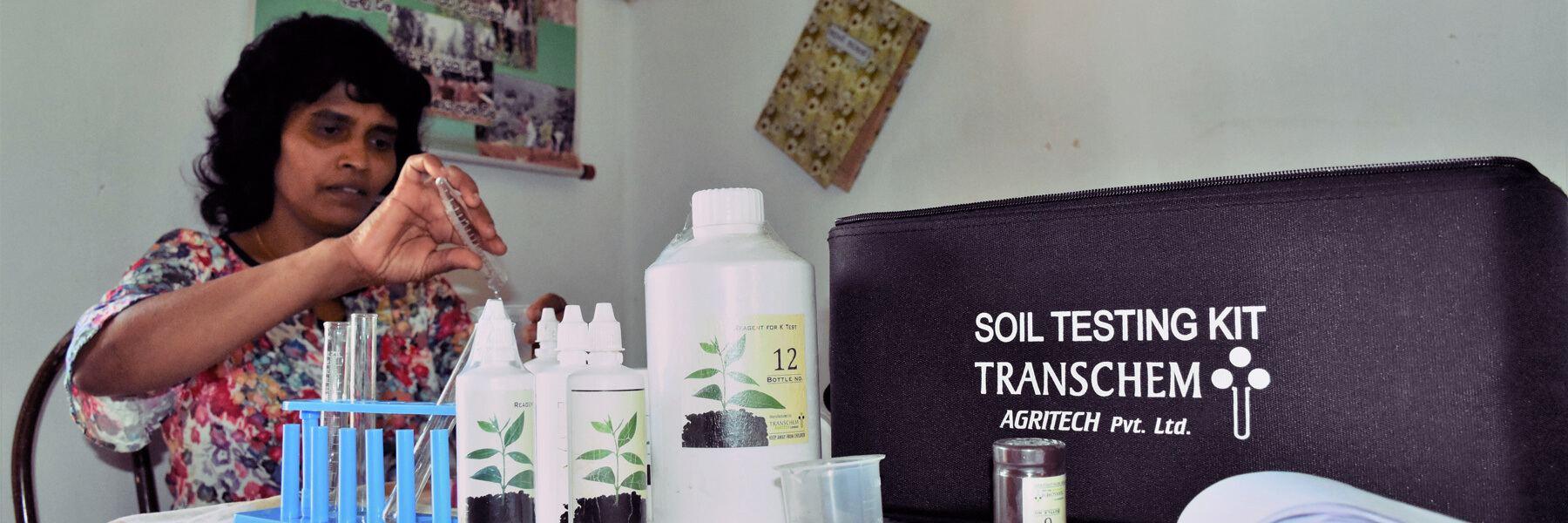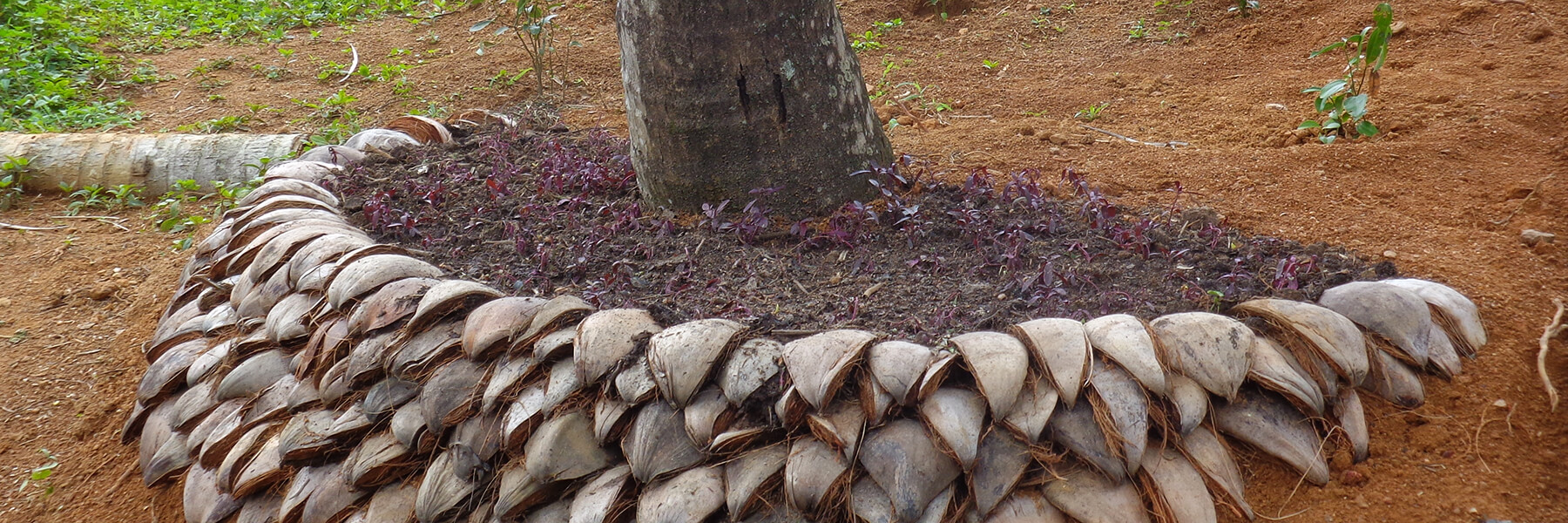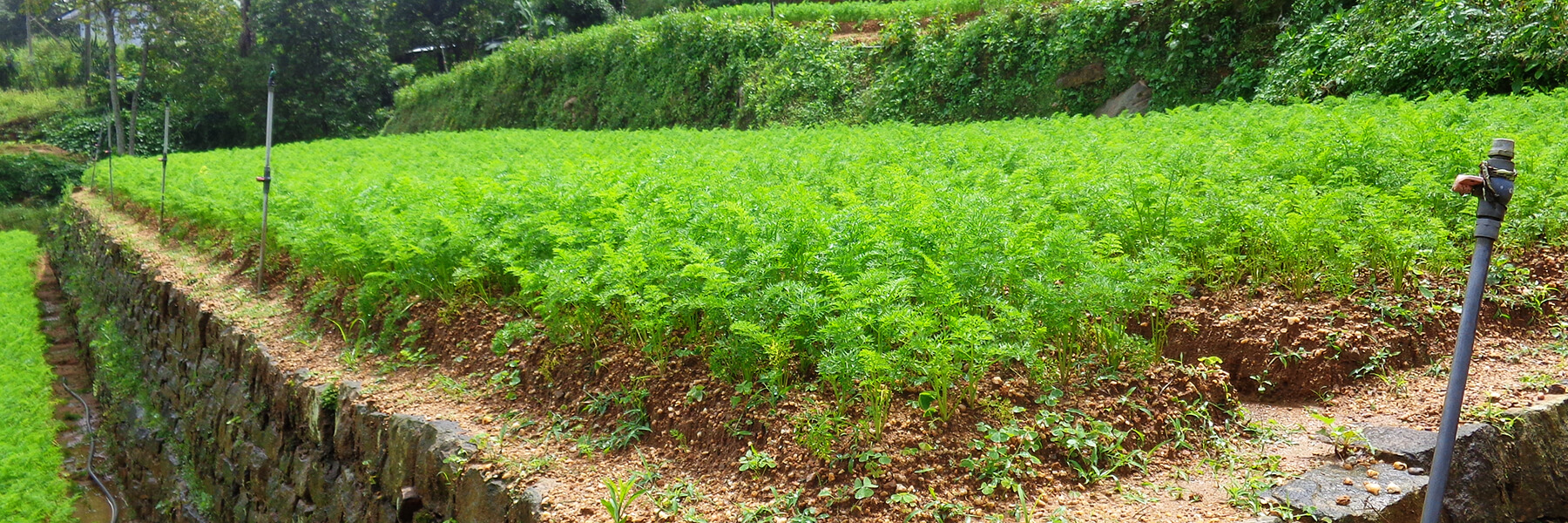Welimada area in the Badulla district is one of the main vegetable cultivation area in the central highland of Sri Lanka and farming is the main livelihood of the majority of the people.
However, due to geographical factors as well as unsustainable farming practices soil erosion is a serious issue in the area that makes farming less profitable and attractive. Uvaparanagama DS division in Welimada has been identified as the area with highest soil erosion in Sri Lanka by studies.
The other factors caused for soil erosion are lack of awareness of the farmers on soil erosion, its consequences and conservation technologies and cultivation of unsuitable crops for the terrain.
The farmers in this area encroach government lands in the steep mountain slopes and cultivate potatoes during the North Eastern monsoon season from October -January. This farming practice is called chena cultivation (slash and burn) and it is a temporary rainfed cultivation method that lasts around 3-4 months with the end of the monsoon rains.
Farmers tend to cultivate seed potatoes which fetch higher price but unsuitable for the terrain. After harvesting the crop, they abandoned these lands and during the rest of the year the lands become pasture for cattle and are exposed to bushfires in July and August, another cause for land degradation.
Due to this farming practice the farmers never think of soil conservation or long-term sustainability of the land. On the other hand, during the monsoon rain period, they loosen soil in the land at three times; at land preparation, earthing up and harvesting. This leads to severe erosion of lands.
Since the land has been using over long period under this unsustainable cultivation method, now they have seriously degraded and unfertile. Hence the farmers have to use excessive chemical fertilizer and pesticides. This again leads to another form of land degradation, soil and water pollution.
This vicious cycle continues every year making these farmlands less and less productive and causing lot of environmental, social and economic issues. According to studies, around 30% of total lands in the area are subjected to this unsustainable farming practices.
The approach
Rehabilitation of Degraded Agricultural Land Project (RDALP) together with relevant government agencies attempted to introduce a solution for this issue.
The rationales behind this approach are; shifting to perennial crops and stop frequent land preparations required for annual crops. Introduce tea cultivation with proper conservation methods. Reduce use of agrochemical. Prevent damages by stray cattle and bushfire in the fallow period. Ensure higher income for the farmers throughout the year.
Awareness and Training programs were conducted to educate farmers on unsustainable farming practice and importance of conversion to perennial crop.
Implementation
RDALP started this initiative with 10 farmers in Welimada and Uvaparanagama DS divisions. This approach faced several challenges. The high cost of conversion is the main obstacle. The cost of land preparation, planting and maintenance of a new tea planation is relatively expensive to potatoes or vegetable cultivation. Also, it takes 3-4 years to get an income from a new tea land if the farmers follow the recommended land preparation process by the Tea Small Holdings Development Authority (TSHDA) the government agency supports the tea smallholdings development.
Considering the gravity of soil erosion issue in the area RDALP together with the stakeholders decided to be flexible and change the procedures to make the conversion less burden to the farmers. Accordingly, tea was cultivated in the same beads prepared for potato cultivation. Skipped the 6 months grass planting process in the land preparation and introduced organic fertilizer application instead.
Orange and pomegranates were introduced as intercropping. Tephrosia plant was introduced as a land cover to reduce erosion and now the farmers use them as a wind barrier as well.
Success story
Chandrasena Rathnayake of Mahahena,Uvaparanagama is one successful farmer now reaping benefits of this crop conversion approach. He said that now he is sure of getting regular income from his tea and it is profitable to potatoes cultivation.
“Within two years now we have started tea plucking and still the income is low but definitely it will increase in coming years with the plants are matured. Fruit plants are still small and I have cultivated orange and pomegranate and they will give extra income in the future” he said. His land has been conserved with appropriate conservation technologies.
“The issue in this transformation is high cost. I spent over 200,000.00 for this ½ acre land and THSDA provided a cash grant and tea seedlings. RDALP provided fruit plants and technical advice is provided by TSHDA”, he said.




